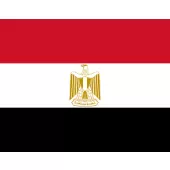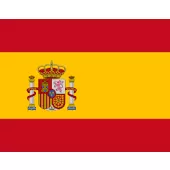
Round Table “Doing Business in Egypt and Incorporation of The Companies”, Held on November, 27th 2024 at 11.00 am Cairo Time.
27th November, 2024 a Round table takes place discussing the current legislative initiatives, implemented by the Egyptian legislator for boostering investor relations in Egypt and identifying and addressing challenges faced by foreign companies. Korea`s economic model will also be discussed as well, as South Korea, which developed rapidly in the years after the conclusion of the Korean War in 1953, undoubtedly serves as an inspiration for Egypt`s potential development. In the early 1960s South Korean government decided to use the cheap labour available in the country as a competitive advantage for the production of cheap goods for export.
The Round table will further pave the way for the direct engagement of the competent authorities in both countries to share the Korean example. Such events play a significant role as a bridge to the MENA Market for Asian companies and explores potential business opportunities. Currently, over 40 Korean enterprises span across various sectors within Egypt, demonstrating the robust commercial synergy between the two nations including electronics, transportation, chemicals, and textiles.
With the enhanced business environment, the Asian business community is showing a strong interest and enthusiasm for Egypt. As costs rise in traditional manufacturing bases like China and Vietnam, many Asian companies are exploring new investment opportunities like young, skilled workforce in Egypt. The event is instrumental in the mutual success as involve directly stakeholders.
Undoubtedly, Egypt can be considered as a key strategic partner for the businesses due to its significant location connecting Europe, the Middle East, and Africa, and its extensive Free Trade Agreement (FTA) network. Egypt’s growth potential and attractive investment incentives (golden licenses, tax exemptions, and export subsidies offered by the Egyptian government) boost investments. At the same time Egypt offers to investor a source for raw materials and energy as well as a consumers’ market of over 100 million Egyptians and if thinking of Egypt as a gateway to those markets benefiting from the free trade agreements Egypt has concluded – even more than that.
In addition, low intra-African trade will be addressed as well because weak regional integration, low economic diversification and poor infrastructure with high transportation costs, limited information exchange hinder sustainable development on the continent. Undoubtedly, success stories of foreign companies in the Egyptian market would encourage more South African companies to invest in Egypt because intra-African trade has a huge potential. The round table is a constructive dialogue for companies and businessmen from both countries to explore investment and trade opportunities. Egypt and South Africa have promising opportunities for economic, investment integration with volume of trade exchange between two countries is constantly increasing. As we know, there is also the initiative to establish the Egyptian-South African business council and remove nontariff barriers undermining trade between Egypt and South Africa for the benefit of the business communities in both countries to make use of the multiple opportunities for trade and investment.
Import companies:
In light of encouraging foreign investment in the Arab Republic of Egypt, new mechanisms have been updated in the Egyptian law to facilitate the registration of the importation companies in Egypt and not to impose any restrictions on foreigners and their ownership over the company. This is in accordance with Law No. 173 of 2023, which entitled foreigners to fully own the importation companies in Egypt without any restrictions.
The decision states that, as an exception to Article 2.2.h of Law No. 121 of 1982 regarding the importers' registry, it is permitted to register joint-stock companies, limited by shares companies, (it is a hybrid entity, having two different groups of owners: the first are limited liability shares owners in common understanding and the second groups are owners liable in solidarity, i.e their liability extend to personal assets), limited liability companies, and all one person companies (even if their shares are not owned by Egyptians or owned by them in less than 51% of the company’s shares.
However, the total duration of registration in the registry should not exceed ten years from the date of obtaining the importation license. Moreover, it can be extended for only one time, for a further maximum period of ten years, upon a decision by the Council of Ministers based on a proposal from the concerned Minister of foreign trade.
Based on this, the condition of Egyptians owning a 51% stake of the company's capital has been dismissed, and the only condition related to Egyptians is that the person who is responsible for import and signing import contracts should be an Egyptian manager.
Types of companies:
The main forms of legal entities to establish a business in Egypt are: 1) Joint stock company, 2) LLC, 3) Representative office, 4) Foreign branch, 5) Sole proprietorship company (one-person trading entity that an individual owns).
The Egyptian Investment Law No. 72 of the year 2017 allows companies established pursuant to it to benefit from a set of incentives, equal opportunities and enhances competitiveness to avoid monopolization. It also focuses on simplifying the incorporation process and all corporate procedures through electronic systems. The Law No 160, introduces amendments to the current Investment Law No. 72 of 2017. According to the cabinet resolution dated January 3, 2024, the eligibility of the investment projects to benefit from the Investment Incentives has been extended for a further 3 years starting July 2023.
Additionally, The Prime Minister's Decision No. 1203 of 2024 was issued to amend the Regulation of Law No. 72 of 2017 (Investment Law), adding the New Administrative capital and the Ras Al-Hikma area to the investment areas, with benefits of the tax incentives up to 80% from the paid-up capital and 50% investment costs.
Registration of the branch of foreign companies in Egypt:
A branch of a foreign company can be only registered in Egypt to carry out a certain project according to a contract concluded with any Egyptian entity either the Egyptian Government, Public Sector, or Private Company.
Although the branch can engage in commercial, financial, industrial, and contractual activities, the activities that the branch will carry out will be limited to those stated in its contract in Egypt, i.e. the activities that will be mentioned in the branch’s commercial register are the activities that mentioned in the contract. In addition, the expiry date of the existence of the branch on the territory of the ARE is linked to the contract's expiry date.
Supporting Egyptian Exports:
In recognition of the importance of encouraging and promoting Egyptian exports, and supporting the industrial, agricultural, and other developmental sectors, Egypt continuously strives to ensure the growth of its exports, aiming to enhance economic expansion, open new markets, and encourage companies to export, thereby spreading Egyptian products globally. To achieve these objectives, the Export Development Fund was established with the purpose of increasing the volume of exports and expanding their scope. Companies joining this fund benefit from export exemptions and support, as formalized by Law No. 155 of 2002.
TOPICS TO BE DISCUSSED:
- Egypt as a gateway to markets across the Middle East and North Africa through the African Free Trade Agreement (AfCFTA).
- From North to South. Egypt does not yet feature amongst South Africa`s top export destinations or import sources, why? What is the future of intra-African trade?
- Korean economic miracle and Egypt.
- Halal requirements when importing food to the ARE.
- Obtaining label “Made in Egypt”. (The percentage 70% of local component is required in line with 30% of foreign one. There are also specific requirements to materials considering that these percentage can be flexible as an exception upon the discretion of the authorized minister).
- Requirements of obtaining the export subsidies in Egypt.
- Types of companies that can be incorporated in Egypt. Unveiling the mystery of registration of the foreign company`s branch in ARE – is it an easy path?
- The Republic of Korea with its recent economic development, is amongst the first models of development that are being studied by other countries to make use of this experience where and when applicable in the Egyptian side.

 English
English
 العربية
العربية
 中文语言
中文语言
 русский язык
русский язык
 Le français
Le français
 Española
Española